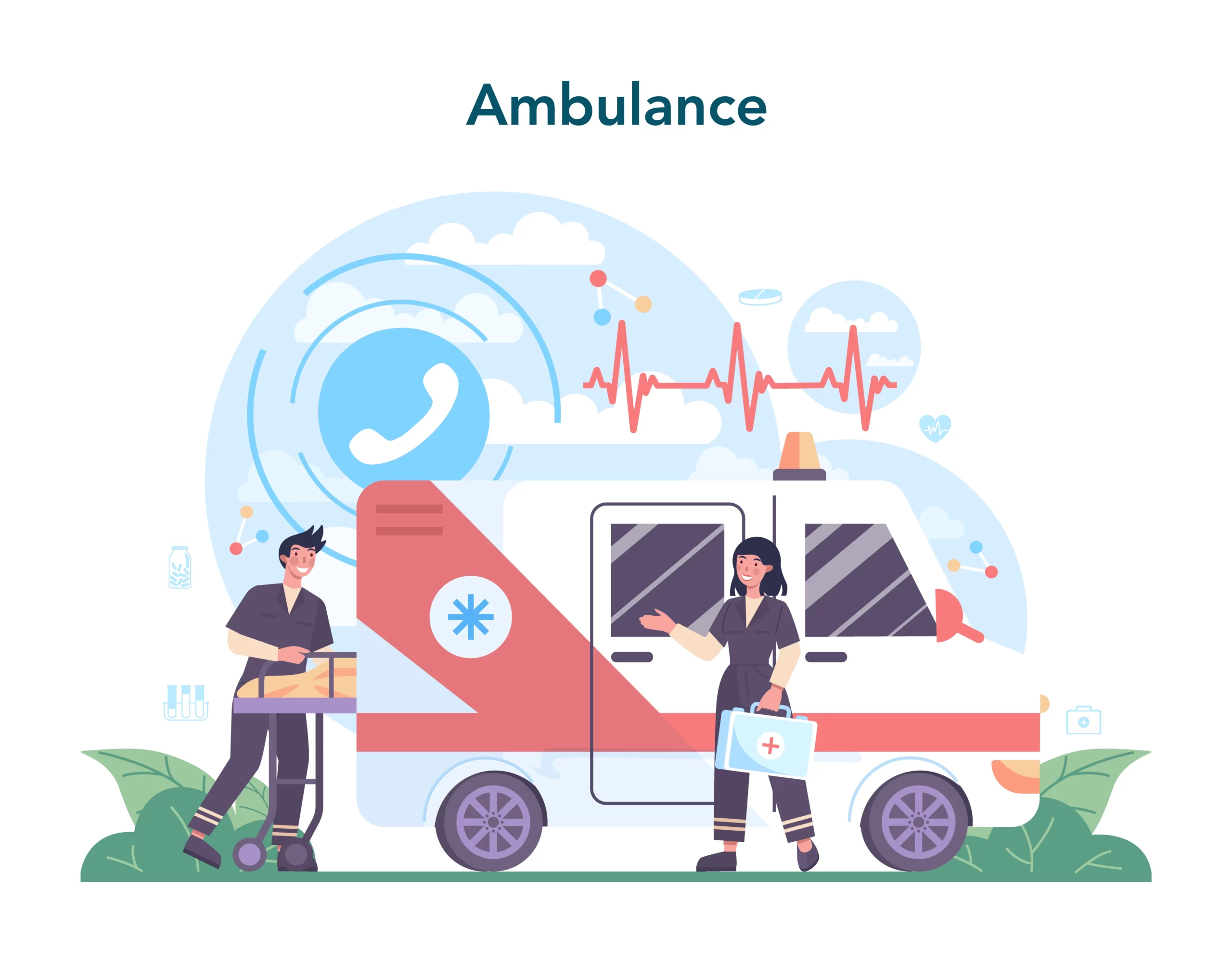No products in the basket.
You don’t need a degree to build a stable, well-paying career in the UK. The old idea that university is the only route to success is fading, as employers now focus more on skills, adaptability, and real-world experience. There are plenty of decent jobs without a degree that can lead to financial stability, career growth, and a future you can be proud of.
In fact, research shows that only around 14% of UK job postings actually require a degree. That means most opportunities are open to people who can demonstrate the right abilities, whether gained through apprenticeships, online learning, or practical experience. In this guide, we will explore the benefits of no-degree careers, the skills employers really want, flexible work options, and how you can choose a path that fits your life.
Benefits of No-Degree Careers
Choosing a career without a university doesn’t mean lowering your ambitions. In many cases, it gives you more freedom and less financial pressure.
- No student debt: University tuition fees can cost tens of thousands of pounds, but many vocational or online courses are far more affordable. That means you can start your career without years of repayments hanging over you.
- Quicker entry into work: Instead of waiting three or more years to qualify, you can train for many jobs in a matter of months. This allows you to build valuable experience while others are still studying.
- Flexibility to change direction: With skill-based careers, you’re not locked into one industry. For example, bookkeeping, IT, and digital marketing skills can be used across many sectors.
By focusing on practical training and short courses, you can step into decent jobs without a degree faster, with less cost and more flexibility. This makes it easier to gain independence and move toward financial stability much earlier than those following the university route.
20 Decent Jobs Without a Degree in the UK
1) Bookkeeper / Payroll Clerk

- Salary range (UK): £24,000–£35,000
Bookkeepers keep day-to-day finances tidy: transaction posting, bank reconciliations, VAT returns, and simple management reports. Payroll clerks handle starters/leavers, timesheets, PAYE, NIC, pensions auto-enrolment, and year-end submissions. It’s detail-oriented work that suits people who like clear rules, numbers, and steady routines. Many roles are hybrid/remote, and progression into assistant accountant roles is common with AAT/ICB.
Expect to use tools like Excel, Xero, QuickBooks, and Sage; accuracy and confidentiality are essential. Early wins include building a clean chart of accounts, reducing late payments, and cutting payroll errors. With experience, you can freelance for multiple small businesses or step into management accounting.
Build practical skills fast with Bookkeeping for Personal and Business Accounting, or add payroll depth via HR and Payroll Management Course from Training Tale.
2) Digital Marketing Executive (Junior)
- Salary range (UK): £24,000–£35,000
Digital marketing execs help brands get discovered online through paid ads, analytics, email, and content. Day to day, you’ll plan campaigns, set budgets, build simple landing pages, track KPIs (CTR, CPA, ROAS), and report insights to stakeholders. It blends creativity with data: you brainstorm ideas, then validate them in dashboards. Remote-friendly with clear paths into PPC, marketing automation, or performance marketing.
Success looks like structured testing (A/B), clean tracking (UTMs/GA4), and iterative improvement. Start with a small funnel project: one audience, one offer, one landing page—measure, learn, scale. A portfolio of live campaigns and reports is your ticket to interviews.
Level up with Digital Marketing and Advertising Course and add retention chops with the Email Marketing Course from Training Tale.
3) SEO Specialist (Junior)

- Salary range (UK): £24,000–£34,000
Junior SEOs improve organic visibility through technical fixes, content optimisation, and link-earning. You’ll run audits (crawlability, indexation, site speed), map keywords to pages, write briefs, and track rankings and traffic. It’s ideal if you enjoy research and structured problem-solving. Many agencies hire trainees; in-house roles are growing across e-commerce and B2B.
Your first months will involve learning to use tools (Search Console, Screaming Frog, basic Looker Studio), shipping small but compounding wins: fixing 404s, improving titles/meta, and building topical clusters. Over time, you’ll own roadmaps, measure ROI, and mentor content teams.
Pair fundamentals with the Data Analytics Course (Beginner) for SEO reporting depth, and refine on-page craft via Level 4 Copywriting from Training Tale.
4) Social Media Manager (Junior)
- Salary range (UK): £23,000–£32,000
Junior SMMs plan and publish content across platforms, manage communities, and support paid social. Expect to create calendars, draft posts/captions, schedule via tools, reply to comments/DMs, and summarise performance (reach, engagement, share of voice). It suits creative communicators who can balance brand tone with quick turnarounds.
Impact comes from consistent storytelling, smart repurposing (one hero asset → multiple clips), and testing hooks. You’ll collaborate with designers, sales, and customer service, and learn light editing for Reels/Shorts. With results on the board, you can specialise in community, creator partnerships, or paid social.
Dive into Social Media Marketing Strategy and reinforce campaign fundamentals with the Communication Skills Course.
5) Copywriter / Content Writer
- Salary range (UK): £24,000–£35,000
Copywriters craft words that inform, persuade, and convert—across websites, ads, emails, and long-form content. You’ll research audiences, interview SMEs, outline, draft, edit, and proof. The work suits readers and thinkers who enjoy turning complex ideas into crisp language. Portfolios matter: 6–10 strong samples can outshine a CV.
Early wins include clear messaging hierarchies, stronger calls-to-action, and style-guide consistency. Learn to measure impact (open rate, CTR, time on page, conversion). From here, you can niche into UX writing, email marketing, technical writing, or brand storytelling—freelance or in-house.
Polish your craft: Take Level 4 Copywriting and tighten your prose with Level 5 Proofreading & Copy Editing from Training Tale.
6) UX/UI Assistant (Junior)

Salary range (UK): £25,000–£35,000
If you enjoy being creative but also like things to be neat and organised, UX/UI design could be a great fit. As a junior assistant, you’ll help design apps or websites so they’re easy and enjoyable to use. That means sketching simple page layouts, tidying up Figma files, or even testing how people interact with a design. You’ll work alongside designers, developers, and managers, which means you’ll never be stuck doing the same thing every day.
It’s exciting because you actually get to see your ideas come to life on a screen. Even small changes, like fixing a button or making a form easier to fill in, can make a huge difference for users. With a little experience and a portfolio of projects, you can grow into a full UX or UI designer role and work on bigger projects.
Sharpen your writing and design communication with the Business Writing course from Training Tale.
7) Front-End Web Developer (Junior)
- Salary range (UK): £28,000–£40,000
Front-end developers are like digital builders—they take a design and turn it into a working website or app. As a beginner, you’ll learn how to write code using HTML, CSS, and JavaScript. You’ll also make sure sites look good on phones and computers, and you’ll fix any bugs that pop up. If you’re someone who enjoys problem-solving and seeing quick results, this role can feel very rewarding.
The best part is you don’t need a degree to start. By practising small projects, like building a personal website or a simple app, you’ll learn fast. Once you’ve mastered the basics, you can move into more advanced skills like React, testing, or even working closely with back-end developers to create full-scale applications.
Boost your confidence in tech by taking the IT Security course from Training Tale.
8) Junior HR Assistant
- Salary range (UK): £24,000–£32,000
A junior HR assistant plays a vital role in supporting the smooth running of a company’s human resources department. Day-to-day tasks often include helping with recruitment by posting job ads, screening CVs, and scheduling interviews. You’ll also assist with maintaining accurate employee records, updating HR databases, and handling paperwork such as contracts and policies. Because HR is people-focused, you’ll spend time answering staff questions, guiding them through onboarding, and sometimes helping with payroll or training administration.
This is an excellent entry point for anyone organised, empathetic, and good at communication. You don’t need a degree to start—many employers are more interested in your people skills, attention to detail, and willingness to learn. Over time, you can work your way up to HR officer, HR adviser, or even HR business partner. With the right training, progression in HR can also lead to specialised areas such as learning and development, recruitment consultancy, or employment law.
Build your foundation with the HR Management course from Training Tale, which will give you the essential knowledge to thrive in an HR role and help you move up the career ladder with confidence.
9) IT Support
- Salary range (UK): £24,000–£35,000
IT support is often the first step into the world of tech. When someone’s laptop crashes, their email won’t load, or their printer refuses to work—you’re the hero who helps them fix it. You’ll answer calls, log tickets, and walk people through simple solutions. Sometimes you’ll even fix things remotely, right from your desk. If you’re patient and like helping people, this role can be very rewarding.
It’s also a fantastic way to learn. You’ll get hands-on experience with networks, security, and different systems. From there, many people move into more advanced roles like cybersecurity, cloud support, or systems administration. It’s a flexible starting point with lots of doors open for the future.
Start strong with the Computer Maintenance Course from Training Tale.
10) Cybersecurity Analyst (Entry / SOC Tier 1)
- Salary range (UK): £28,000–£38,000
Cybersecurity is one of the most in-demand fields right now, and you don’t need a degree to get started. As a junior analyst, your main job is to keep an eye on alerts, investigate suspicious activity, and report anything unusual. You’ll learn how hackers try to get in, and more importantly, how to stop them. It’s like being a digital detective—if you love puzzles and solving problems, this career will keep you hooked.
In the beginning, you’ll mostly be spotting and reporting issues. But as you learn, you’ll move into more advanced tasks like creating playbooks, handling real incidents, and protecting whole systems. The pay is strong even at entry level, and the field is growing fast, so there’s lots of room to move up.
Kickstart your cyber career with the Level 5 Diploma in Cyber Security Course from Training Tale.
11) Police Constable (PCDA Route)\

- Salary range (UK): £28,000–£43,000
Becoming a police constable is more than just a job—it’s a calling. You’ll be out in the community every day, helping people, preventing crime, and protecting the public. You’ll respond to emergency calls, investigate cases, and sometimes deal with tough, emotional situations. The Police Constable Degree Apprenticeship (PCDA) lets you earn while you train, so no degree is needed upfront.
It’s challenging, yes—but also deeply rewarding. Few roles give you the same sense of purpose. Over time, you can specialise in areas like cybercrime, dog handling, or detective work. The role suits people who are resilient, compassionate, and ready to face something new every day.
Strengthen your leadership skills for the future with the Level 7 Diploma in Leadership and Management Course from Training Tale.
12) Firefighter
- Salary range (UK): £28,000–£38,000
Firefighters are real everyday heroes. You won’t just be putting out fires—you’ll also be rescuing people, responding to road accidents, and educating communities about fire safety. The training is tough, but you get paid while you learn, and you build strong teamwork skills you’ll carry for life.
It’s a career full of adrenaline, but also moments of quiet pride when you know you’ve made a real difference. If you enjoy working in a team, staying fit, and helping others, this job could be perfect for you. Every day is unpredictable, but that’s part of the excitement.
Add valuable safety knowledge with Level 2 Fire Safety from Training Tale.
13) Prison Officer

- Salary range (UK): £32,000–£38,000 (with London allowances higher)
Prison officers play a huge role in keeping society safe and helping offenders turn their lives around. You’ll supervise prisoners, maintain security, and support rehabilitation programmes. It’s demanding, but you’ll be trained and supported from day one.
The job can be intense at times, but it’s also incredibly meaningful. Helping people change for the better is a challenge, but when it works, it’s rewarding beyond words. This role suits strong communicators who can stay calm under pressure and lead with fairness.
Build confidence in handling people and situations with Dealing With Difficult People from Training Tale.
14) Border Force Officer
- Salary range (UK): £25,000–£35,000
As a Border Force officer, you’ll help protect the UK’s borders. That means checking passports, stopping illegal goods, and keeping the country safe. You’ll work shifts at airports, seaports, or border posts, and you’ll need to be observant and confident when dealing with the public.
It’s a role with plenty of responsibility, but it also offers stability and a chance to make a real impact. You’ll develop sharp problem-solving skills and learn to think on your feet. If you like variety and working in a role that really matters, this could be for you.
Learn key risk-handling strategies with the Level 5 Diploma in Risk Management Course from Training Tale.
15) Emergency Care Assistant (Ambulance)
- Salary range (UK): £22,000–£28,000 plus overtime
Emergency care assistants work side by side with paramedics, helping people when they need it most. You’ll drive ambulances under blue-light conditions, assist with first aid, and support patients on the way to the hospital. It’s a role full of responsibility, but you get full training and support to prepare you.
You’ll see challenging situations, but also moments of deep gratitude from patients and families. If you’re caring, calm under pressure, and want a career where every day you can truly save lives, this role is worth considering.
Start building vital life-saving skills with Workplace First Aid Training from Training Tale.
16) Healthcare Support Worker (NHS Band 2–3)
- Salary range (UK): £22,000–£25,000
Healthcare support workers are the backbone of the NHS. You’ll help nurses and doctors with day-to-day care, like taking observations, helping patients move, and making sure they’re comfortable. It’s hands-on work where kindness and patience matter more than qualifications.
It’s not always easy—some days can be emotional—but it’s a role where you truly see the difference you make in someone’s life. Many people use this as a first step into nursing or other NHS careers, because you can study and train further while you work.
Start your journey with the Level 3 Award in Health and Social Care Course from Training Tale.
17) Dental Nurse
- Salary range (UK): £22,000–£30,000
Dental nurses are there to support dentists during check-ups and treatments. You’ll prepare instruments, keep patients at ease, and make sure everything runs smoothly in the surgery. You’ll also help with records and infection control. If you’re calm, caring, and good with people, this role can feel really rewarding.
You don’t need a degree to start—many dental nurses train while they work, gaining the diploma they need for registration. It’s a great career if you want job security, friendly working environments, and a skill set that’s always in demand.
Begin with the Dental Nurse course from Training Tale to build your foundation.
18) Mortgage Adviser (Trainee, CeMAP Route)
- Salary range (UK): £28,000–£45,000+ OTE
Mortgage advisers guide people through one of the biggest financial decisions of their lives—buying a home. In this role, you’ll help clients understand their borrowing options, compare mortgage products, and complete applications with lenders. You’ll also explain things like interest rates, repayments, and insurance, ensuring customers feel confident and informed. It’s a role that combines customer service with financial knowledge, making it ideal for organised, trustworthy, and approachable people.
You don’t need a degree to get started, but you do need the CeMAP qualification (Certificate in Mortgage Advice and Practice), which can be studied online at your own pace. Once qualified, you can join a bank, building society, or mortgage broker as a trainee adviser. From there, the career path is wide open—you can progress into senior mortgage adviser roles, branch management, or even move into broader financial advice. Because the role is commission-based, motivated advisers often earn well above the starting salary.
Prepare for this career by taking the CeMAP: Mortgage Advisor Course from Training Tale, which will give you the essential knowledge to qualify and begin advising clients with confidence.
19) Service Desk Analyst (Junior Pathway)

- Salary range (UK): £24,000–£35,000
Tech support roles are a friendly entry into IT. You’ll be the go-to person when someone’s computer won’t turn on, when the Wi-Fi drops, or when a password needs resetting. It’s problem-solving with people skills—patience and communication are just as important as tech know-how.
This role gives you a great overview of how IT works in real companies. Many people move from here into cloud computing, networking, or cybersecurity. If you like fixing problems and helping people at the same time, it’s a brilliant starting role.
Build your confidence with the Computer Maintenance Course from Training Tale.
20) Junior QA / Software Tester
- Salary range (UK): £25,000–£35,000
QA testers are like quality guardians for apps and websites. Your main job is to test software, find bugs, and make sure everything works as it should. You don’t need to be a coding expert—just curious, thorough, and good at following steps.
It’s a role where attention to detail really pays off. Many testers start by doing manual testing, then grow into automation, performance testing, or security testing. It’s a fantastic entry into the tech world for people who like puzzles and problem-solving.
Build your testing skills with the Quality Assurance and Quality Management Diploma from Training Tale.
Skills That Employers Value More Than Degrees
Employers want people who can deliver results, not just certificates. That’s why a strong set of both soft and hard skills will make you highly employable.
- Soft skills include communication, teamwork, problem-solving, adaptability, and resilience. These qualities make you reliable under pressure and able to work effectively with others.
- Hard skills include IT support, bookkeeping, digital marketing, customer service, and first aid. These can be learned quickly through short courses or online training and applied immediately in the workplace.
The strongest candidates combine both. For example, someone working in IT support will need the technical skills to solve problems but also the communication skills to explain solutions clearly to colleagues who aren’t tech-savvy. Building this mix of abilities gives you the flexibility to grow across different industries and roles.
Remote and Flexible Work Options
Work no longer has to mean a nine-to-five office routine. Many jobs that don’t require a degree can be done remotely or on a freelance basis. Popular examples include copywriting, social media management, bookkeeping, and IT support.
Remote work has its advantages: no commuting, more time with family, and access to jobs outside your local area. It also makes freelancing or side hustles more achievable, since you can manage your own schedule. However, competition for these jobs can be tough. Employers often want to see proof that you are skilled, organised, and motivated.
One of the best ways to stand out is by completing CPD-accredited courses. These show employers that you’re committed to continuous learning and ready to apply professional standards. Providers like Training Tale make this simple with online CPD courses you can complete at your own pace. Adding a CPD certificate to your CV can make you a stronger candidate for flexible and remote-friendly opportunities.
How to Choose the Right Path for You
With so many possibilities, choosing the right career path depends on your interests, strengths, and lifestyle. Here are some key questions to ask yourself:
- Do I prefer helping people face-to-face, or do I enjoy working with systems, numbers, or technology?
- Do I want an active, hands-on job, or would I rather work at a desk?
- Am I looking for long-term stability with a steady income, or do I value freedom and flexibility to freelance?
- Do I thrive on creative work like writing or design, or am I more comfortable with structure and clear processes?
Your answers will help guide your decision. For example, if you enjoy caring for others, healthcare or support roles might suit you. If you like detail and structure, bookkeeping or payroll administration may be ideal. If you’re creative, digital marketing or copywriting could be the right fit.
Conclusion
There are many decent jobs without a degree available in the UK today, and the opportunities are only growing. Employers are focusing less on academic backgrounds and more on practical skills, problem-solving ability, and motivation. This shift opens up career paths that were once thought impossible without a university.
The most important thing is to take action. Whether that means enrolling in a short course, applying for an apprenticeship, or starting small freelance projects, every step builds momentum. Your career doesn’t have to be delayed by years of study—you can begin shaping it today with one simple decision to move forward.
If you’re ready to boost your skills and show employers you’re serious, explore the Professional Development courses at Training Tale. They’re flexible, online, and designed to help you grow into the career you want—faster and with confidence.




